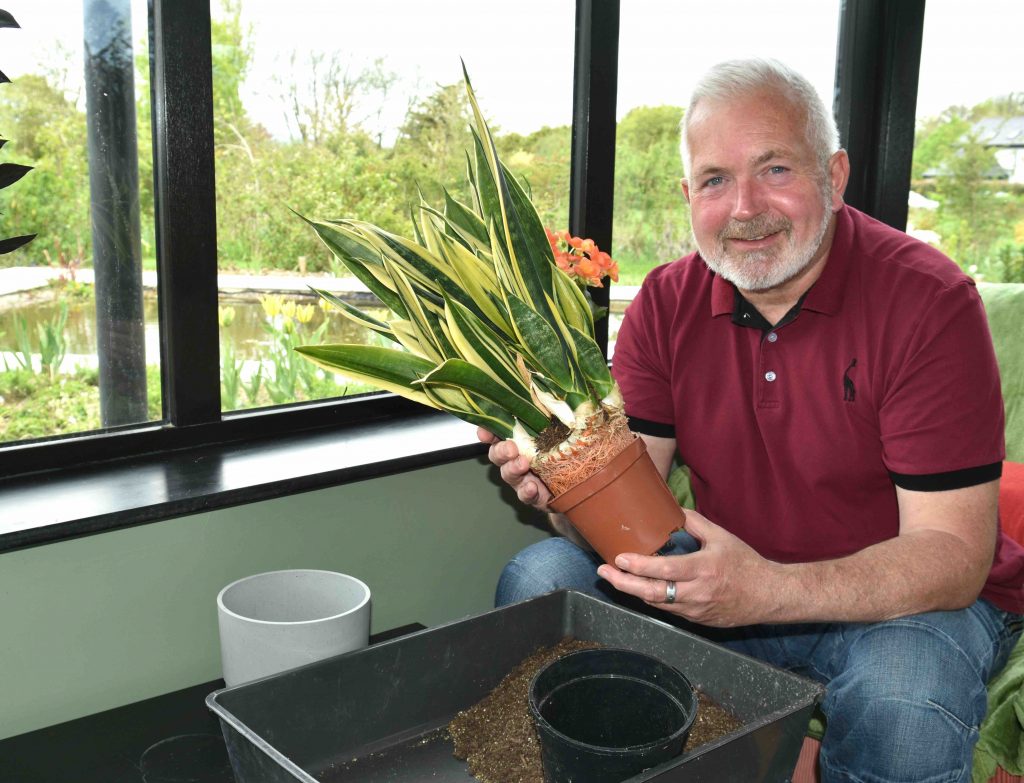
With so much to do in the garden our houseplants can get a bit neglected at this time of year. Yet it is the ideal time to repot any that are getting potbound and generally give them a clean or tidy. I have been repotting some of my houseplants.
It is often recommended that houseplants are ‘released’ into the open air for a while once the weather warms up – given a summer holiday – but this is not a good idea and I would suggest that you don’t. Your plants will have been used to low light levels in the home and once put outside and exposed to sunlight… well you know what happens when you go on holiday and strip off your clothes! More often than not the leaves get scorched by the sun. This will kill areas of the leaf and the damage will remain for years. You can put them out in a gentle shower to wash off dust but, too often. the plants fall over and get damaged believe me, I’ve done it. It is far better, and easier, to put them in the shower and give them a rinse (cool, obviously).
Most plants will grow for many years without needing to be repotted. If you feed them regularly with a liquid fertiliser they will grow well in a surprisingly small pot. You should feed then while they are growing, from March to October.
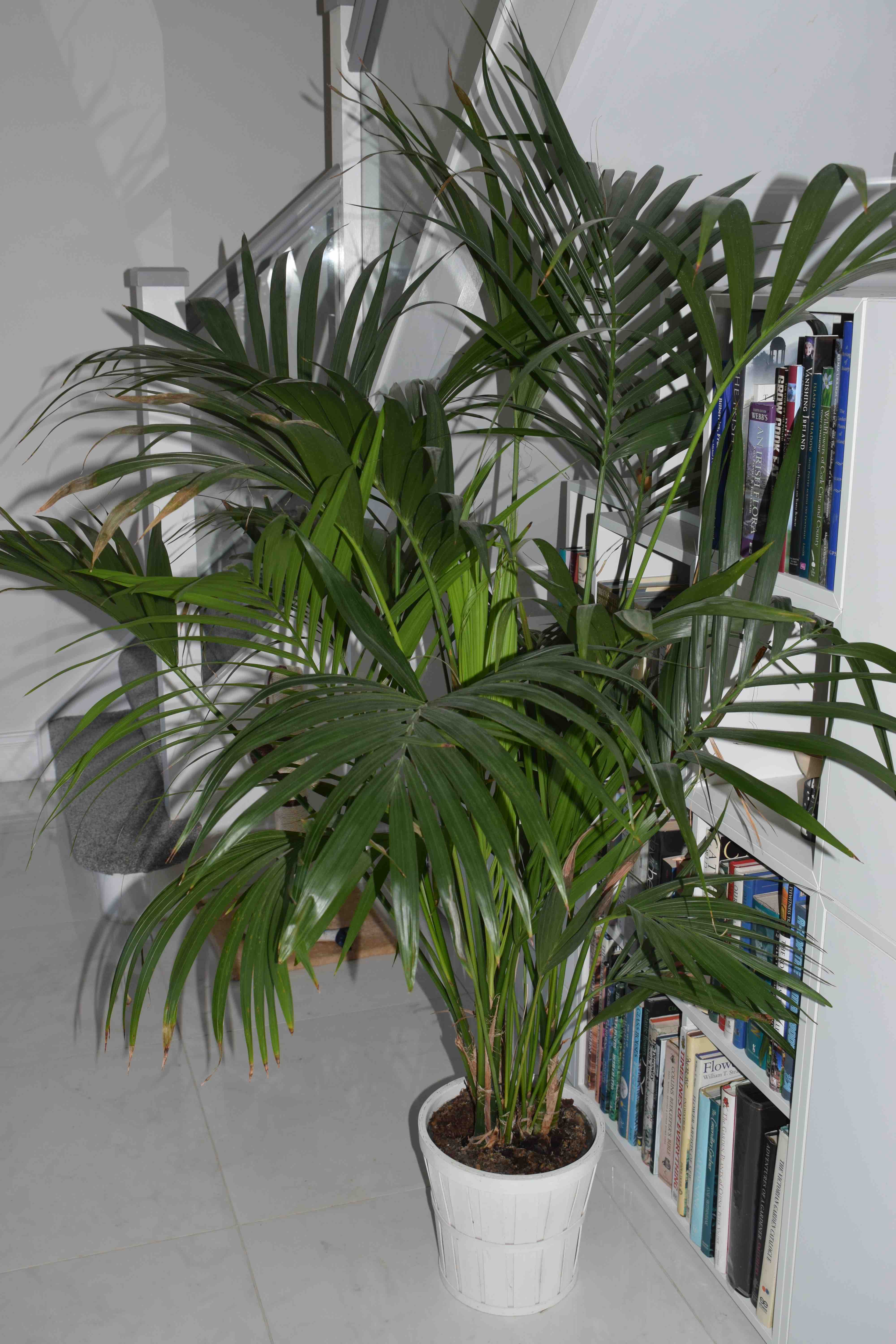
Some pot plants, grown for flowers, have a short life. But most ‘green’ plants will live for years and as they grow they need repotting. This can be a dangerous time for your plants because putting them in a bigger pot means the roots are surrounded by lots of compost that the plant has not sent roots into and this can remain wet for long periods. That is why this is the ideal time to repot, so the plant has all summer to root into the compost. Always pot into a slightly bigger pot and not a huge one. This is the most common reason for plants dying after being repotted.
You can buy houseplant compost or you can use multipurpose compost if you add some Seramis or Perlite to improve drainage. If repotting orchids you MUST use orchid compost.
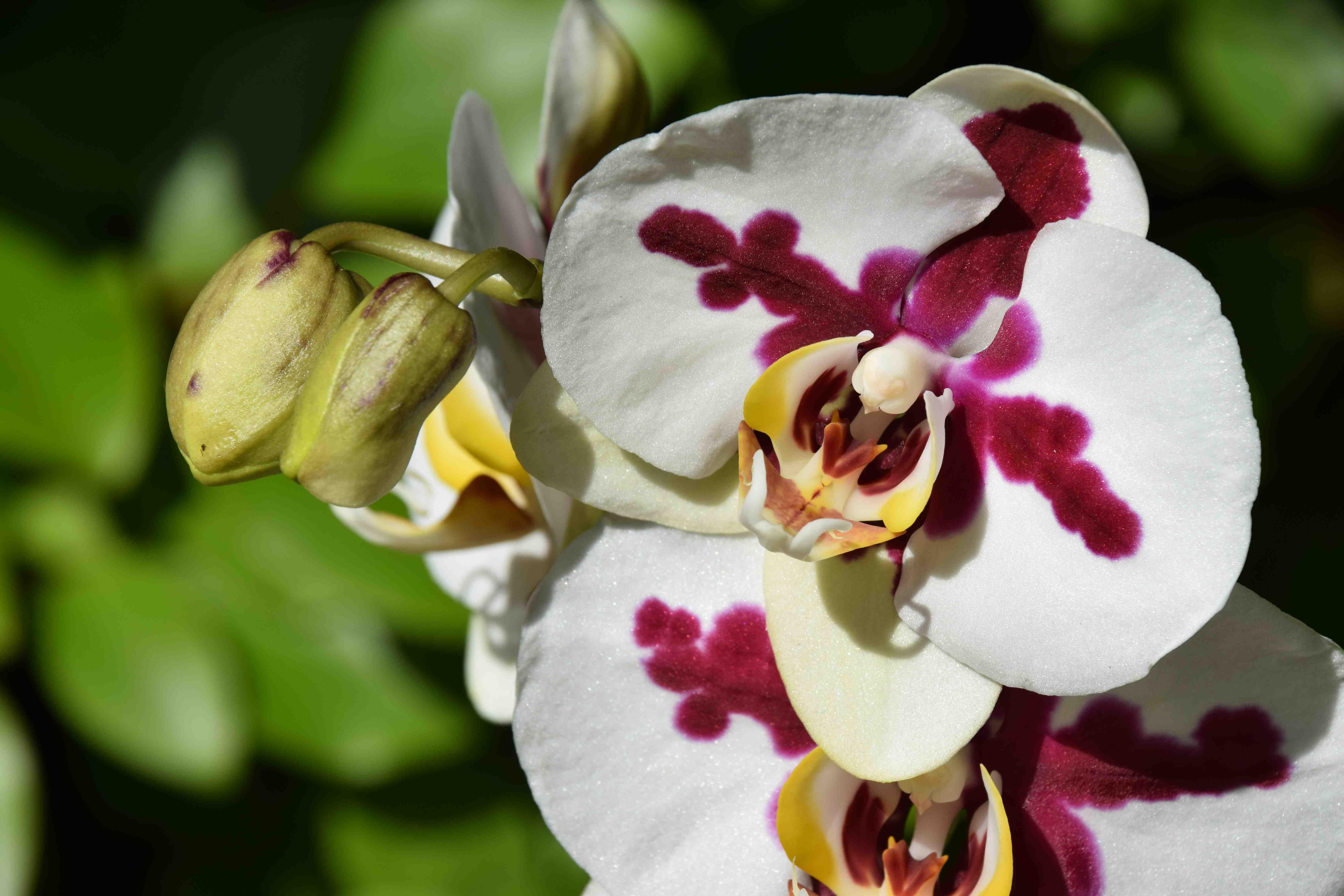
Some plants will let you know they need repotting by distorting or breaking the pot. This sansevieria has been in its original pot since I bought it two years ago and is now desperate to be repotted. It is being moved into a slightly bigger pot. These plants are very sensitive to overwatering.
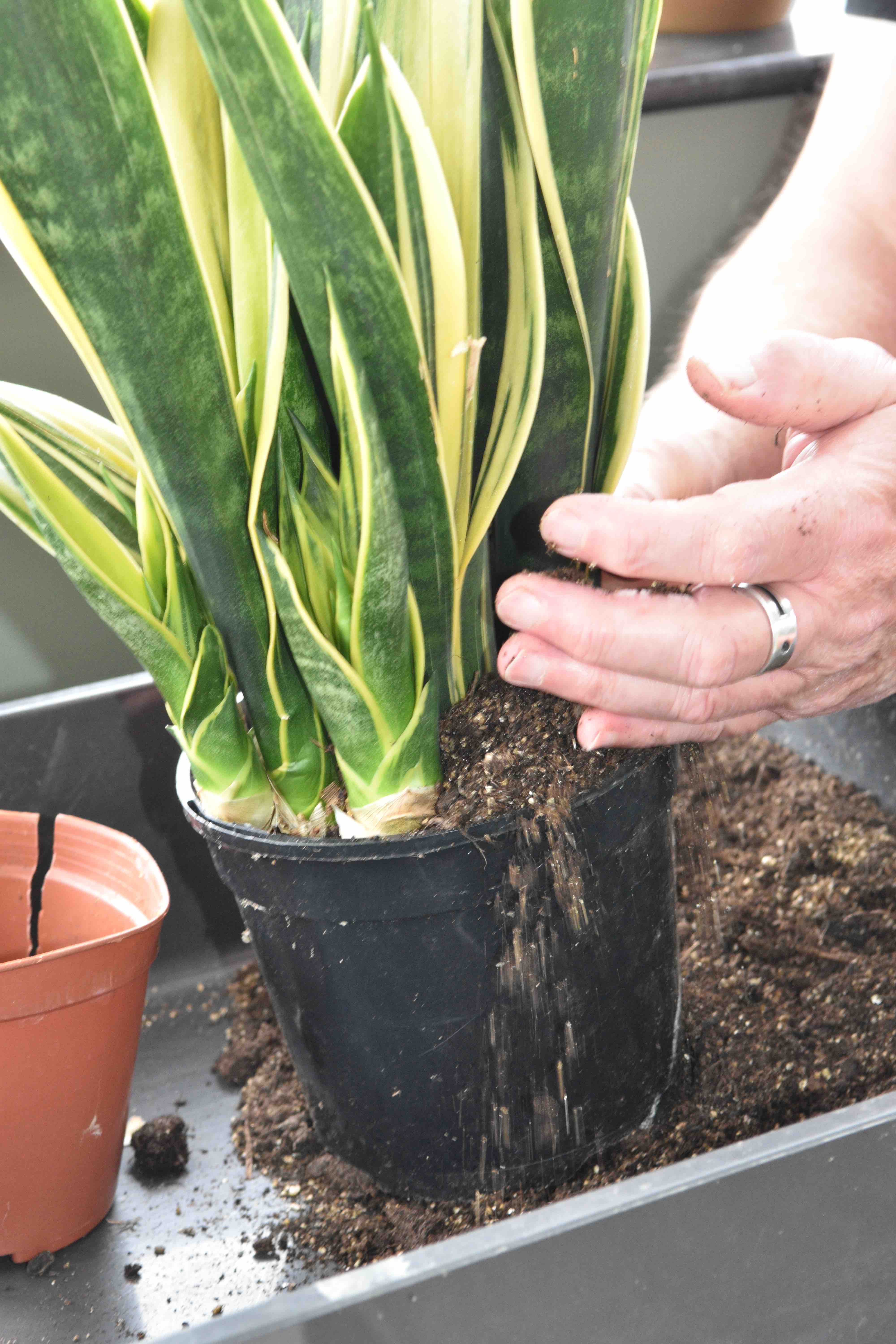
It will benefit from being repotted to give the roots and shoots more space. It will make it less ‘unbalanced’ and look better in the pot. I will still need to feed it through summer.
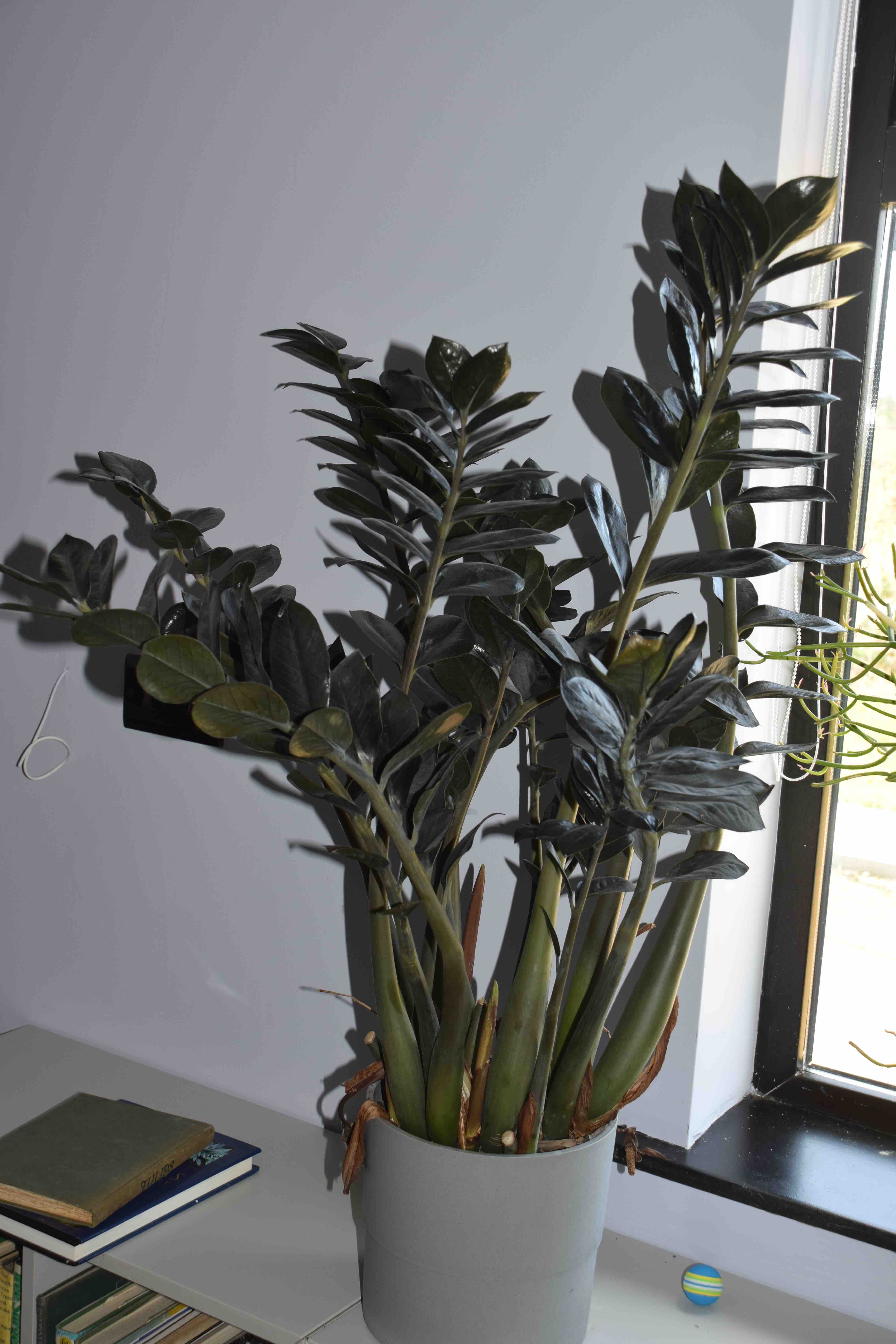
Some houseplants are produced by potting several cuttings or seedlings together in a pot. This is common with palms. It can be tempting to try to divide these but it is best not to try, once they are established. You will cause a lot of root damage to the plants and they are unlikely to recover. It is best to enjoy them as a clump and not try to make more plants.
After repotting, water the plant to settle the compost. Then you may not need to water so frequently for a while until the roots fill the fresh compost. Be careful that the pot is not sitting in a puddle in the pot holder.
Tender Veg
There is still time to sow all kinds of squash, including courgettes and to sow some sweetcorn.
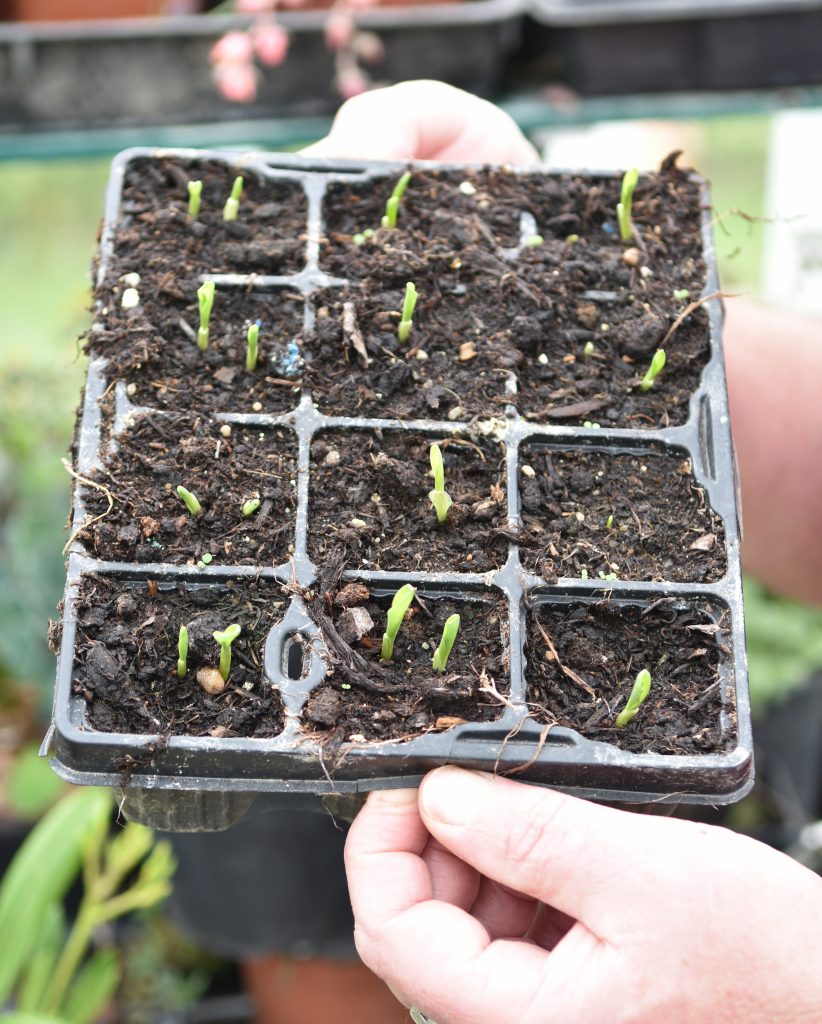
Next week – caring for roses